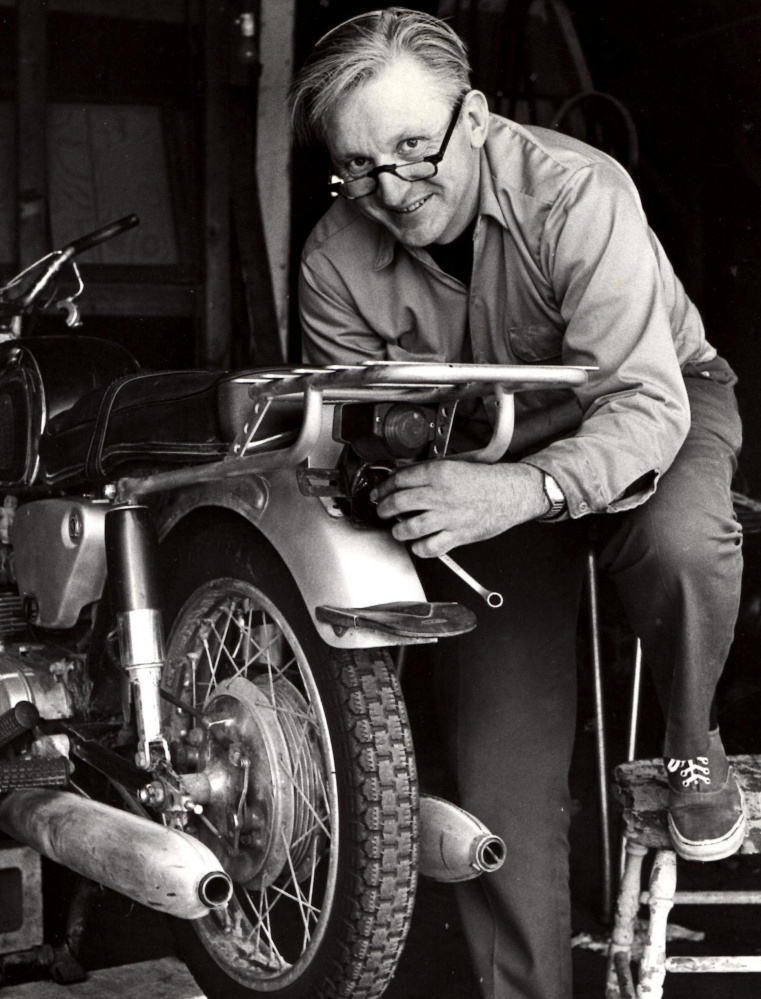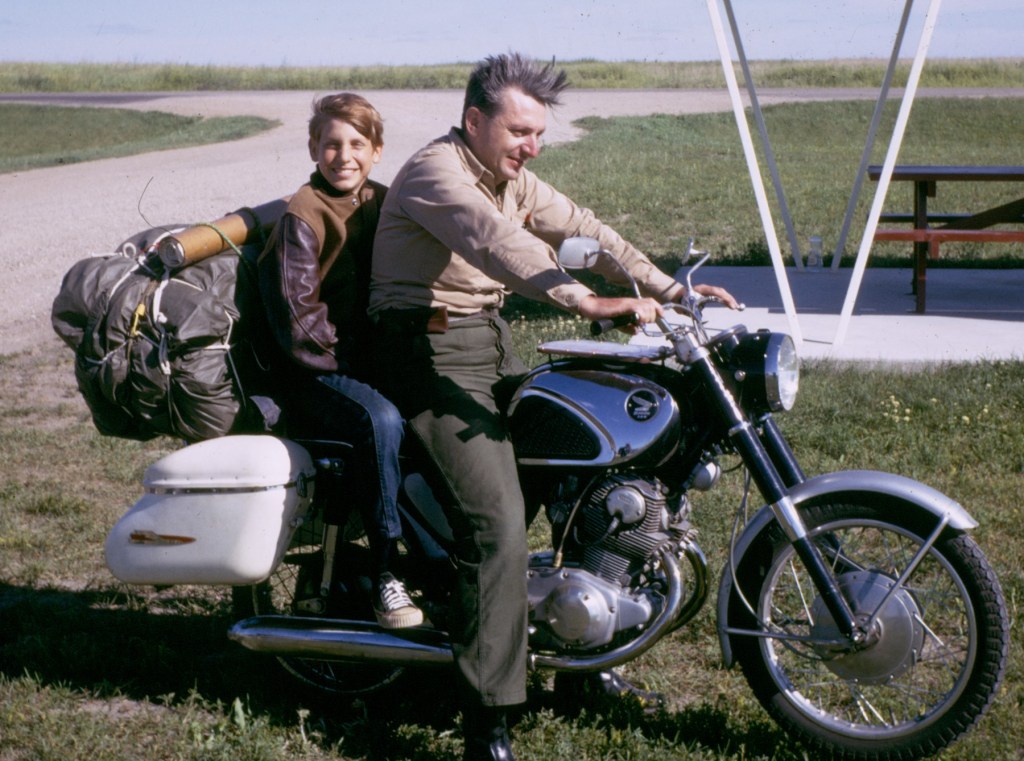Robert Pirsig, author of the 1970s best-seller “Zen and the Art of Motorcycle Maintenance: An Inquiry into Values,” died at his home in South Berwick on Monday. He was 88.
Pirsig had been experiencing failing health, according to a statement from his publisher, William Morrow and Company.
Peter Hubbard, executive editor at William Morrow, said he spoke with Pirsig’s wife, Wendy, and that she confirmed her husband’s death.
Pirsig had lived in the York County community for the past 30 years.
His next-door neighbor, Joseph Somers, described Pirsig as a “good neighbor” who kept to himself. “I didn’t know him very well. He was a very private person and I respected that,” said Somers.
“Zen and the Art of Motorcycle Maintenance” was published in 1974 after the manuscript had been rejected by 121 publishing houses.
“The book is brilliant beyond belief,” William Morrow Editor James Landis wrote before it was published. “It is probably a work of genius and will, I’ll wager, attain classic status.”
Landis’ statement turned out to be prophetic. Pirsig’s philosophical exploration of quality was critically acclaimed and rose on best-seller lists. The book sold 50,000 copies in three months and more than 5 million copies over the past four decades. It has been translated into at least 27 languages and is still readily available. Longfellow Books in Portland’s Monument Square had two copies Monday.
The book recounts a 1968 motorcycle trip through the Northwest that Pirsig and his 11-year-old son, Chris, made with two friends from Minneapolis. “The real cycle you are working on is a cycle called yourself,” says a line from the inside book jacket.
“Zen,” described as one of the most influential books of popular philosophy ever written, explored the thesis that quality is the basis of reality, and that this understanding unifies most East Asian and Western thought. Pirsig dubbed his system of thought the Metaphysics of Quality.
“Its protagonist set out to resolve the conflict between classic values that create machinery, such as a motorcycle, and romantic values, such as experiencing the beauty of a country road. He discovered that all values, and even reality itself, derive from quality, which is shapeless, formless, indescribable,” Pirsig’s family said of the book in a statement issued Monday.
The statement described Pirsig as an American philosopher and author whose work “inspired road trips across America.”
He rarely gave interviews or made public appearances. The Los Angeles Times dubbed Pirsig “New England’s second-most-reclusive novelist” after J.D. Salinger, the author of “The Catcher in the Rye,” who lived in Cornish, N.H.
The statement from Pirsig’s family also talked about his life.
He was born in Minneapolis on Sept. 6, 1928, the son of University of Minnesota law professor Maynard E. Pirsig. He excelled in elementary school, scoring an IQ of 170 at age 9 and graduating from high school at the age of 15. After studying chemistry in college, Pirsig enlisted in the Army. He spent 14 months in Korea, where he was exposed to Asian culture and philosophy.
He graduated from the University of Minnesota in 1950 with a degree in philosophy and then traveled to India, where he spent a year doing graduate work in Hindu philosophy.
Pirsig was diagnosed with paranoid schizophrenia and was hospitalized in 1962 for what the Los Angeles Times described as an emotional collapse. He received electroconvulsive shock therapy at a Minnesota hospital in 1963, an experience Pirsig recounts in “Zen.”
After a long separation, Pirsig was divorced from his first wife in 1978. Several months later he married Wendy Kimball, a writer he met while sailing off the Florida coast. They crossed the Atlantic and lived aboard his boat in England, the Netherlands and Sweden before returning to the United States in 1985.
After “Zen” was published, Pirsig “lived reclusively” and worked on a sequel, “Lila: An Inquiry into Morals,” for 17 years before it was published in 1991. His family said he was a skilled mechanic who performed repairs in his home workshop and taught himself navigation in the days before GPS, twice crossing the Atlantic in his sailboat.
Pirsig’s son Chris died in 1979 when he was stabbed to death during a mugging at a bus stop near the Zen Buddhism center in San Francisco where he lived.
Pirsig is survived by his wife, two children and three grandchildren.
The memorial service will be private. The family requested that, in lieu of flowers, donations be made to an academic or charitable organization.
Dennis Hoey can be contacted at 791-6365 or at:
dhoey@pressherald.com
Copy the Story LinkSend questions/comments to the editors.





Success. Please wait for the page to reload. If the page does not reload within 5 seconds, please refresh the page.
Enter your email and password to access comments.
Hi, to comment on stories you must . This profile is in addition to your subscription and website login.
Already have a commenting profile? .
Invalid username/password.
Please check your email to confirm and complete your registration.
Only subscribers are eligible to post comments. Please subscribe or login first for digital access. Here’s why.
Use the form below to reset your password. When you've submitted your account email, we will send an email with a reset code.